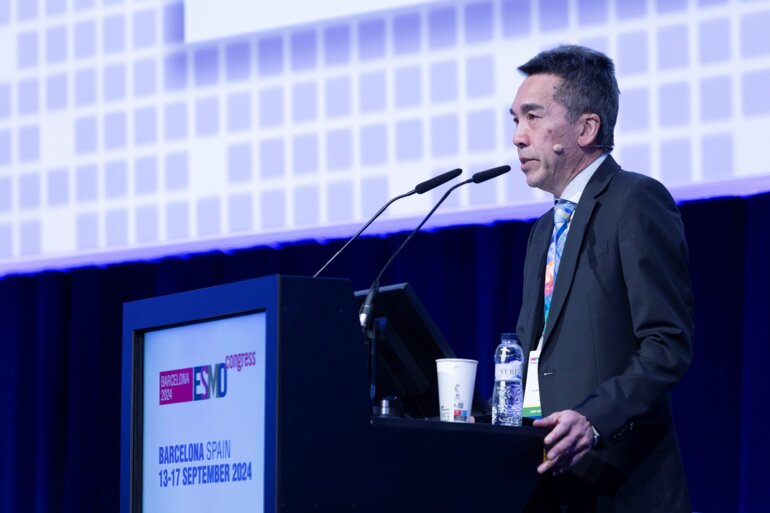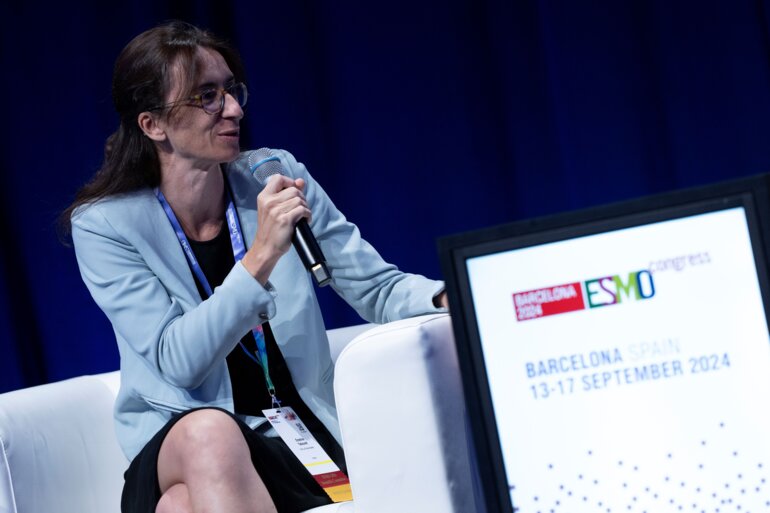ESMO Congress 2024

Taxane- and anthracycline-sparing regimens show promise in high-risk, early-stage breast cancer
High rates of pathological complete response were reported with neoadjuvant datopotamab deruxtecan plus durvalumab in patients with specific subtypes of breast cancer and at high risk of recurrence

Novel ALK-selective TKIs show early efficacy in advanced NSCLC with rare mutations
Further studies are needed to understand the position of the fourth-generation agents NVL-520 and NVL-655 in the treatment paradigm of mutated lung cancer

Study findings confirm the benefits of BRAF and MEK inhibitors in mutated non-small cell lung cancer
Longer duration of efficacy reported for encorafenib plus binimetinib as a treatment for NSCLC harbouring a BRAF V600 mutation

Neoadjuvant chemoradiotherapy has no role in the treatment of operable gastric cancer
Final late-phase trial results show that the addition of pre-operative chemoradiotherapy to peri-operative chemotherapy does not improve long-term outcomes in patients

First-line immunotherapy combination improves overall survival in HER2-positive metastatic G/GEJ adenocarcinoma
Final analysis of the KEYNOTE-811 trial reports positive findings when adding pembrolizumab to trastuzumab and chemotherapy in treatment-naïve patients

Antibody–drug conjugates offer hope for patients with breast cancer including patients with brain metastases
New positive findings from research in advanced or metastatic breast cancer support the use of these agents in wider patient populations

Promising results reported for novel antiangiogenic agents for neuroendocrine tumours
The fields of metastatic pancreatic NETs and advanced and low proliferative grade 3 disease tumours move forward

Further support for durvalumab consolidation as a new standard of care in limited-stage SCLC
Subgroup analyses from the ADRIATIC study support previous practice-changing findings

Novel immunotherapeutics suggest promise in high-grade gliomas
Results from early-phase studies reveal potential for a new cancer vaccine and adaptive immunotherapy

Multi-gene ctDNA profiling effectively matches patients with advanced cancer to targeted therapies
In France, a nationwide programme aims to broaden access to the technology based on the positive results collected so far


